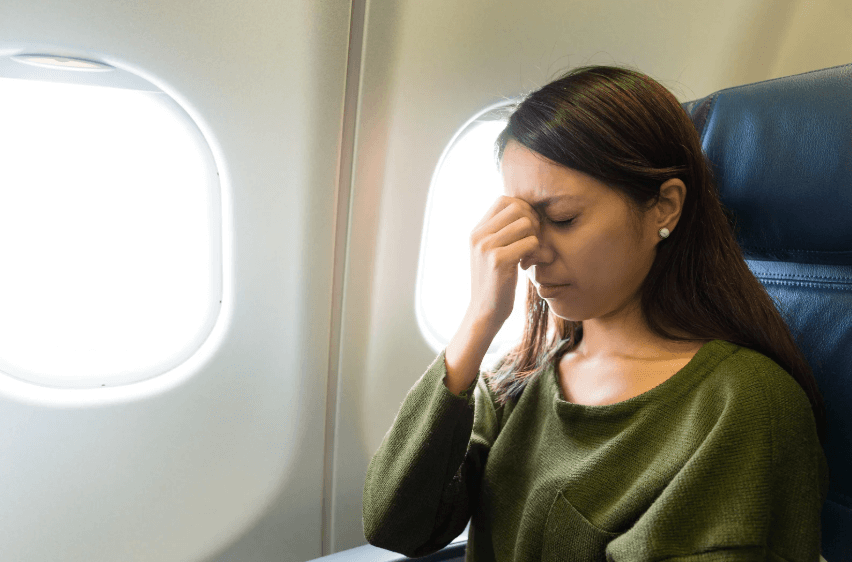Types of Anxiety Disorders

There are many types of anxiety disorders that include panic disorder, obsessive-compulsive disorder, post-traumatic stress disorder, social anxiety disorder, specific phobias, and generalized anxiety disorder.
Anxiety is a normal human emotion that everyone experiences at times. Many people feel anxious or nervous when faced with a problem at work, or before taking a test or making an important decision. Anxiety disorders, however, are different. They can cause such distress that it interferes with a person’s ability to lead a normal life.
An anxiety disorder is a serious mental illness. For people with anxiety disorders, worry and fear are constant and overwhelming and can be crippling.
Types of anxiety disorders
- Generalized Anxiety Disorder (GAD) – GAD affects 6.8 million adults or 3.1% of the U.S. population. Women are twice as likely to be affected as men.
- Obsessive-Compulsive Disorder (OCD) – 2.2 million, 1.0% Equally common among men and women. The median age of onset is 19, with 25 percent of cases occurring by age 14. One-third of affected adults first experienced symptoms in childhood.
- Panic Disorder – 6 million, 2.7% Women are twice as likely to be affected as men. Very high comorbidity rate with major depression.
- Posttraumatic Stress Disorder (PTSD) – 7.7 million, 3.5% Women are more likely to be affected than men. Rape is the most likely trigger of PTSD: 65% of men and 45.9% of women who are raped will develop the disorder. Childhood sexual abuse is a strong predictor of lifetime likelihood for developing PTSD.
- Social Anxiety Disorder – 15 million, 6.8% Equally common among men and women, typically beginning around age 13. According to a 2007 ADAA survey, 36% of people with social anxiety disorder report experiencing symptoms for 10 or more years before seeking help.
- Specific Phobias – 19 million, 8.7% Women are twice as likely to be affected as men. Typically begins in childhood; the median age of onset is 7.
What are the symptoms of an anxiety disorder?
Symptoms vary depending on the type of anxiety disorder, but general symptoms include:
- Feelings of panic, fear, and uneasiness
- Uncontrollable, obsessive thoughts
- Repeated thoughts or flashbacks of traumatic experiences
- Nightmares
- Ritualistic behaviors, such as repeated hand washing
- Problems sleeping
- Cold or sweaty hands and/or feet
- Shortness of breath
- Palpitations
- An inability to be still and calm
- Dry mouth
- Numbness or tingling in the hands or feet
- Nausea
- Muscle tension
- Dizziness
How are anxiety disorders diagnosed?
If symptoms of an anxiety disorder are present, the doctor will begin an evaluation by asking you questions about your medical history and performing a physical exam. Although there are no lab tests to specifically diagnose anxiety disorders, the doctor may use various tests to look for physical illness as the cause of the symptoms.
If no physical illness is found, you may be referred to a psychiatrist or psychologist, mental health professionals who are specially trained to diagnose and treat mental illnesses. Psychiatrists and psychologists use specially designed interview and assessment tools to evaluate a person for an anxiety disorder.
The doctor bases his or her diagnosis on the patient’s report of the intensity and duration of symptoms — including any problems with daily functioning caused by the symptoms — and the doctor’s observation of the patient’s attitude and behavior. The doctor then determines if the patient’s symptoms and degree of dysfunction indicate a specific anxiety disorder.
How common are anxiety disorders?
Anxiety disorders affect about 19 million adult Americans. Most anxiety disorders begin in childhood, adolescence, and early adulthood. They occur slightly more often in women than in men and occur with equal frequency in whites, African-Americans, and Hispanics.
If you or a loved one are suffering from feelings of anxiety, you’ll benefit greatly from an appointment with one of the many skilled counselors in the Great Lakes Psychology Group network. With locations in Michigan, Illinois, Wisconsin, and Minnesota, you’re a short drive from taking a giant leap toward a better you.
Ready to prioritize your mental health?
Great Lakes Psychology Group is here to help. With an extensive network of caring therapists available to meet online or in-person, we make it easy to find the right fit for your unique needs.



